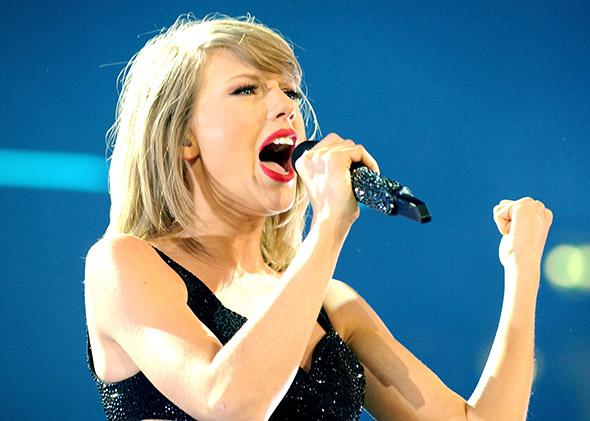It was pretty easy to laugh a year ago when Taylor Swift penned an essay in the Wall Street Journal arguing that record companies had erred by giving music to fans for free on streaming platforms like Spotify. Beyond being written in the most Swifitian fashion imaginable—“The way I see it, fans view music the way they view their relationships,” the queen of revenge pop opined—the piece demonstrated what seemed like a somewhat shaky grasp on the current state of the music business. “It’s my opinion that music should not be free, and my prediction is that individual artists and their labels will someday decide what an album’s price point is,” she wrote, seemingly ignoring 15 years of evidence suggesting otherwise.
In retrospect, though, that op-ed may have marked a turning point for the industry. Swift famously pulled her entire catalog from Spotify late last year in protest of its free service. And increasingly, label executives have also been questioning the wisdom of the ad-supported free-streaming approach.
That brings us to this weekend, when Taylor Swift managed to more or less singlehandedly browbeat Apple into paying artists and labels more money for the rights to their music. Here’s what went down. Apple is preparing to launch its new streaming service, Apple Music, at the end of this month. Unlike Spotify, it will only offer a paid subscription option, the basic version of which costs $10 a month. However, it will allow customers to sign up for a three-month free trial. Originally, Apple did not plan to pay labels any money for the music fans streamed during that tryout period. But to compensate, it offered to give rights holders 71.5 percent of all the revenue generated by Apple Music, slightly higher than the streaming-industry standard of 70 percent.
Swift was not happy and took to her Tumblr to voice her frustration, while explaining why she had decided not to make her most recent hit album, 1989, available on Apple’s new platform. “I’m sure you are aware that Apple Music will be offering a free 3 month trial to anyone who signs up for the service,” she wrote. “I’m not sure you know that Apple Music will not be paying writers, producers, or artists for those three months. I find it to be shocking, disappointing, and completely unlike this historically progressive and generous company.”
By the end of the day, Apple had reversed course, with Senior Vice President of Internet Services and Software Eddy Cue announcing via Twitter that the company would in fact pay labels for music streamed during the free trial. As ReCode’s Peter Kafka reported, “It can’t be at the same rate that Apple is paying them after free users become subscribers, since Apple is paying out a percentage of revenues once subscribers start paying. Instead, he says, Apple will pay rights holders on a per-stream basis, which [Cue] won’t disclose.”
Cue has said that Apple made the decision in part because of complaints from independent labels, but that Swfit’s Tumblr post “solidified the issue for us.” In other words, she’s gone from writing naive-sounding op-eds to forcing Tim Cook’s hand on Apple’s business practices. In the process, Swift just helped set a new standard for rights-holder payments that other streaming services that rely on free trials will likely need to match in the future if they aren’t already. Swift is legitimately becoming one of the more influential voices about the future of the music industry.
Is that a good thing? I’m not entirely sure. Swift has tended to frame the streaming debate as a conflict between artists and companies like Spotify that want to let fans listen for free. But in doing so, she’s tended to gloss over another, equally important issue: The fact that labels pass a very small share of the streaming revenue they earn onto artists. For Swift, that might be less of a concern, given her close relationship with her label, Big Machine, in which her family reportedly owns some equity. But many musicians might be getting ripped off less by tech companies than the people who have always ripped them off—record executives. The more heat Swift helps put on Spotify and Apple, the more she’s probably helping take it off of Sony, Universal, and Warner.
